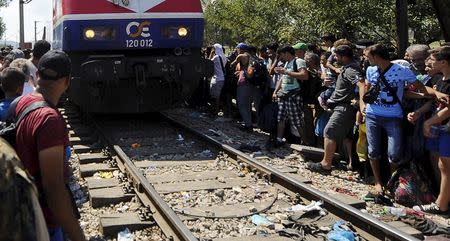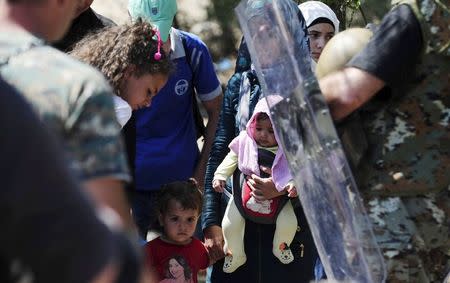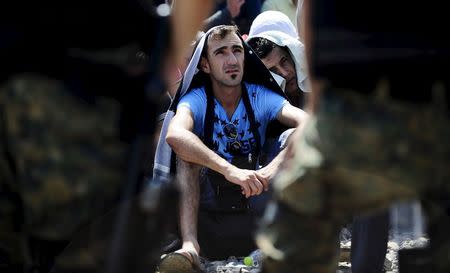Up to 3,000 refugees, migrants expected a day in Macedonia: UNHCR
By Stephanie Nebehay GENEVA (Reuters) - Up to 3,000 migrants are expected to cross into Macedonia every day in the coming months, most of them refugees fleeing war, particularly from Syria, the United Nations said on Tuesday. Member states of the European Union must share the burden by establishing "equitable re-distribution" of desperate families seeking asylum in the bloc, the U.N. refugee agency said. Nearly 300,000 people have crossed the Mediterranean this year, including nearly 181,500 in Greece and 108,500 in Italy, according to the U.N. High Commissioner for Refugees (UNHCR). Some 10,000 refugees and migrants crossed into Macedonia from Greece amid chaotic scenes last weekend, it said. About 30 percent are women and children, UNICEF said. "They are coming in large groups of 300 to 400 people and then traveling onwards by train or bus to Serbia. We are anticipating that this influx and this route is going to continue at the rate of up to 3,000 people per day," UNHCR spokeswoman Melissa Fleming told a news briefing. "We do not see any end to the flow of people to come in the coming months, where there's good weather and people can continue to cross the Mediterranean," she said. In 2014, boats set out from Libya and Turkey through November. At least 2,373 migrants have died in the Mediterranean this year, nearly 300 more than the same period last year, Joel Millman of the International Organization for Migration said. Ongoing violence in Iraq and Syria and "worsening conditions" for Syrian refugees in Turkey, Jordan and Lebanon are driving people to seek asylum in Europe, Fleming said. "Even news that a fence is being built in Hungary, anecdotally many refugees are saying actually we are rushing to Europe now because we want to get there before the fence," she said. Syria's neighbors, which have taken in 4 million Syrian refugees, are stretched to the limit and UNHCR lacks adequate funding to improve conditions in those countries, Fleming said. "People are leaving Turkey, they are leaving Jordan, they are leaving Lebanon and Syrians are fleeing directly out of Syria as the situation continues to be very dire." Germany and Sweden have been taking 43 percent of the asylum seekers in the EU, Fleming said. "If you look proportionately to population, smaller countries such as Austria are taking huge number of asylum seekers where other countries are taking very few," she said. The 28 EU members must offer more resettlement places for refugees and legal avenues to asylum-seekers, especially those seeking to join family members. "We honestly believe if correct measures are taken this is something that Europe can handle," Fleming said. "It's a bigger number than last year, yes. But it's not going to turn Europe upside down." (Editing by Robin Pomeroy)



